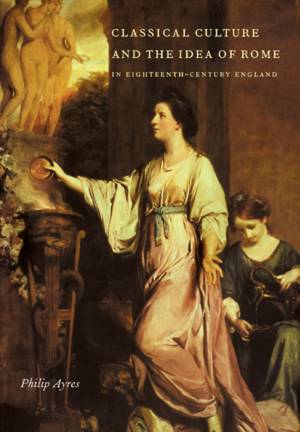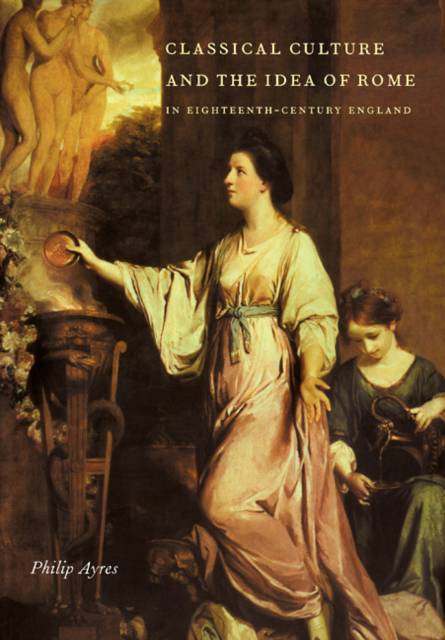
- Afhalen na 1 uur in een winkel met voorraad
- Gratis thuislevering in België vanaf € 30
- Ruim aanbod met 7 miljoen producten
- Afhalen na 1 uur in een winkel met voorraad
- Gratis thuislevering in België vanaf € 30
- Ruim aanbod met 7 miljoen producten
Zoeken
Classical Culture and the Idea of Rome in Eighteenth-Century England
Philip Ayres, Ayres Philip
Paperback | Engels
€ 72,45
+ 144 punten
Omschrijving
This book is the first to look at the aristocratic adoption of Roman ideals in eighteenth-century English culture. In the century following the Revolution of 1688, the ruling class promoted--by way of its patronage--a classical frame of mind embracing all the arts, on the foundations of "liberty" and "civic virtue". Ayres' study shows that the propensity to adopt the self image of virtuous Romans was the attempt of a newly empowered oligarchy to dignify and vindicate itself by association with an idealized image of Republican Rome.
Specificaties
Betrokkenen
- Auteur(s):
- Uitgeverij:
Inhoud
- Aantal bladzijden:
- 296
- Taal:
- Engels
Eigenschappen
- Productcode (EAN):
- 9780521105798
- Verschijningsdatum:
- 19/03/2009
- Uitvoering:
- Paperback
- Formaat:
- Trade paperback (VS)
- Afmetingen:
- 170 mm x 244 mm
- Gewicht:
- 476 g

Alleen bij Standaard Boekhandel
+ 144 punten op je klantenkaart van Standaard Boekhandel
Beoordelingen
We publiceren alleen reviews die voldoen aan de voorwaarden voor reviews. Bekijk onze voorwaarden voor reviews.











